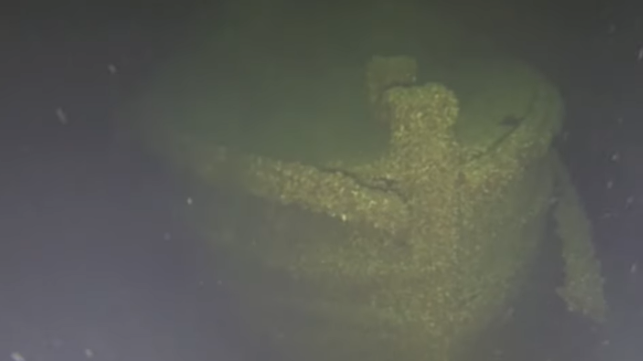Survey Finds Only Known Packet Boat From Earliest Days of Erie Canal

A team of researchers has uncovered more than a dozen wrecks of 19th-century canal boats in Upstate New York's Seneca Lake, including the first identified packet boat. These boats carried cargo and passengers along lake routes that connected to the state's canal network.
Using a research vessel belonging to Middlebury College, the team has been searching for evidence of the packet-boat trade of the early 1800s. It has had considerable success, returning with the first images of relics of the era - and some of the first images ever.
Early canal boats did not proceed under their own power: They were towed by steamship along the lakes, then pulled along the canal system by mules on the banks - much like the traction system used on the Panama Canal. From newspaper accounts of the time, the researchers knew that some of these boats had gone down during towing across the Finger Lakes, including Seneca Lake. They suspected that some might have been preserved well enough to be found on the bottom, and they were correct. So far, they've located at least 16, including the first ever identified packet boat - an early design that was mostly known from illustrations and descriptions.
Based on their success, the State of New York has launched the Seneca Lake Archaeological and Bathymetric Survey Project to search for and document the wrecks.
"The storied history of New York State is intrinsically tied to the Erie Canal, and we have a duty to not only preserve that history, but to make it real for all New Yorkers," Governor Andrew Cuomo said. "The technology being used on Seneca Lake allows us to see and better understand what lies within the lake’s depths, and through these expeditions, we’re adding to the state’s historical record. This project will further cement the Empire State’s far-reaching legacy while educating generations to come."
